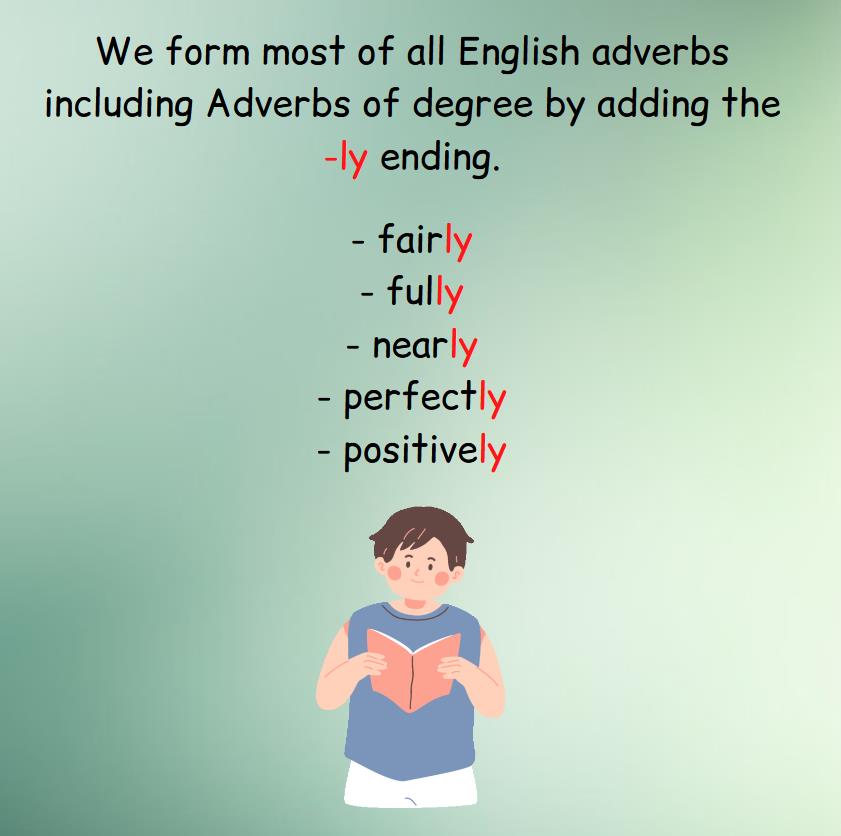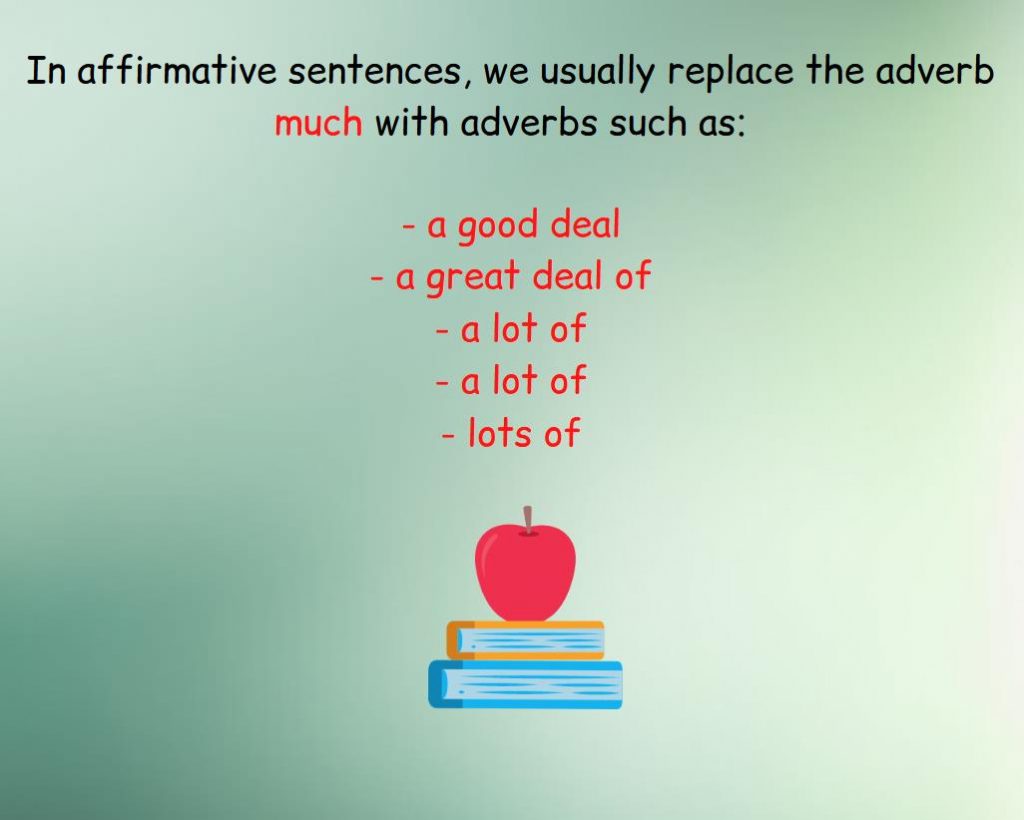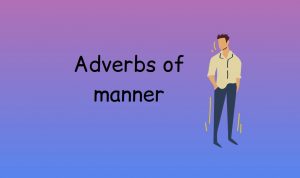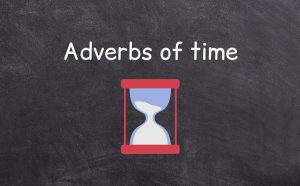In this lesson, we are going to learn adverbs called Adverbs of degree.
Adverbs of degree give us additional information about the nature of an action or event.
Adverbs of degree can give a specific assessment of an action or event. An emotional assessment. Emphasizing what the speaker is saying is his personal opinion.
Here is a list of the most popular Adverbs of degree:
- little
- nearly
- almost
- very
- too
- just
- so
- much
- enough
- hardly
- scarcely

How to form Adverbs of degree
We make up most of all English adverbs including Adverbs of degree by adding the -ly ending.
- fairly
- fully
- nearly
- perfectly
- positively
We add the ending -ly using the following rules:
Rule 1: If the word ends in -y, then we change the letter -y to -i and add the ending -ly.
happy – happily
Rule 2: If the word ends in -le, we remove the -le and replace it with the ending -ly.
incredible – incredibly
Rule 3: Exceptions.
There are some exceptions. In the English language, there are adverbs that are formed according to their own unique rules.
Most often these are such adverbs that answer the questions:
- when?
- where?
- how much?
These are such adverbs as:
- well
- far
- fast
- late
- little
etc.

What do Adverbs of degree characterize?
Adverbs of degree can characterize not only verbs but also adjectives and other adverbs.
John can run very fast.
Very, So, How.
For example, such adverbs as very, so, how characterize not verbs, but only adjectives or other adverbs.
It was so easy for you to leave.
If we want to describe the meaning of the adverb very for a verb or participle, then it is better to replace the adverb very with:
- much
- very much
I appreciate very much the gift you gave me.
Adverbs of degree reinforce adjectives in a sentence:
Our next-door neighbors are very noisy.
Adverbs of degree clarify the meaning of the verbs in the sentence:
We absolutely adore playing football.
Adverbs of measure and degree can come before verbs, adjectives, or other adverbs.
You can’t fully appreciate foreign literature in translation.
I slept very well
Very and Too.
We use very before adjectives or adverbs when we want to emphasize that there is a lot of something.
We use too before adjectives or other adverbs when we want to emphasize that there is a lot of something, more than necessary.
Mr. Jones is very ill and needs an operation.
It was too dark to see properly.
Very and Too in negative sentences.
Very and Too in negative sentences can mean roughly the same thing. Especially when we use very and too in informal speech.
It was not very wise of you to sell the property.
The weather was not too bad.

When the adverb too appears at the end of an affirmative sentence, it does not mean “much” but “also“.
We are watching you, too. (We are also watching you).
We cannot use the adverb too in negative sentences with its original meaning. This is why we use either instead of too in negative sentences:
I don’t think she has my number, either.
I have never worked for them, either.
Hardly.
Hardly is an unusual adverb. There are several important nuances that make this adverb special.
Hardly is an adverb formed from the adjective hard.
hard + ly = hardly
But there is another adverb that is also formed from the adjective hard. This is the adverb hard.
Thus, two adverbs were formed from the adjective hard:
- hard
- hardly

English learners often confuse these two adverbs.
These two adverbs are formed from one adjective. But these two adverbs mean different concepts:
hard – means to do something hard, persistently.
hardly – means it is unlikely that any event or action will happen. That something could hardly happen. This is unlikely to happen.
Much.
We use match in negative and interrogative sentences:
Do you think that’s too much?
There’s not much time to prepare.
In affirmative sentences, we usually replace the adverb much with adverbs such as:
- a good deal
- a great deal of
- a lot of
- a lot of
- lots of
We use much in negative sentences when we want to express that there is little, not much of something.
You don’t watch much basketball, do you?

As well.
We use as well in affirmative sentences in the same sense as we use either / also. We do not use as well in negative sentences in this meaning. Instead of as well, we use either.
She’s sensual, as well.
I imagine they know the area, as well.
Examples of Adverbs of degree
Look at examples of how we use adverbs of degree in different sentences.
These examples will help you remember the lesson.
It is a racing machine, designed purely for speed.
He simply sailed through the difficult exam.
He is highly rated as a poet.
He could barely afford the railway fare.
Her suit looked extremely expensive.

Hello! If you would like to thank me for the articles I wrote, you can click Buy me a coffee. Thank you! ❤❤❤










